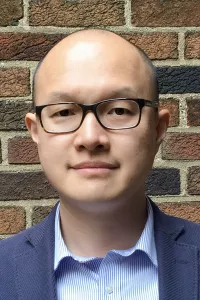UTM prof studies the risks faced by human rights lawyers in China

We don’t usually think of law practice as risky business, but for China’s dissident lawyers, the practice of law can be dangerous work.
Assistant Professor Sida Liu, of U of T Mississauga’s Department of Sociology, studies how lawyers work in China, with a particular focus on criminal defense lawyers who must contend with state politics as they ply their trade.
“Chinese lawyers working in criminal and human rights law take tremendous risk,” says Liu, who officially joined UTM’s sociology team in 2016, but has spent the past year on academic sabbatical at the Institute for Advanced study in Princeton, New Jersey.
In his work as a sociologist, Liu is inspired by Simmelian and change social theories, looking at the ties that bind us together, and the way that society evolves. “I’m intrigued by the shape of social life,” he says. “I’m interested in understanding how lawyers compete and collaborate at different levels, and how they mobilize politically and fight for basic legal rights in the criminal justice system of an authoritarian regime, how they effect progress, and how the government deals with them.”
Liu’s most recent book, Criminal Defense in China: The Politics of Lawyers at Work, was more than a decade in the making. With co-author Terrence Halliday, Liu interviewed more than 200 lawyers practicing criminal defense and human rights law in China.
“I was fascinated with the Chinese lawyers’ approach to politics,” Liu says. “Lawyers face a lot of resistance. We wanted to know their motivations and ideologies as well as their political embededness within the state.”
“The more embedded lawyers are less likely to challenge the government,” Liu says. “Most active human rights lawyers come from a grassroots background. While some lawyers are pushing for liberal reforms, they face the most risks of persecution—they can be disbarred, arrested or sent to prison.” Liu notes that several the laywers interviewed in the course of his research were subsequently arrested in an industry-wide crackdown by the Chinese government that began in 2015. “Some were tortured, some were sent to prison,” he says.
In his research, Liu follows online chat rooms and blogs by Chinese lawyers, as well as conversations happening on Chinese social media platforms Weibo and WeChat. “Those sources were extremely helpful as a complement to our interviews,” he says. “Lawyers go through a lot of hardships to do what they’re doing. They’re not willing to talk openly about political resistance. Those anonymous conversations help lawyers to mobilize around specific cases. They can socialize and organize collective action to support or defend cases, or generate public attention.”
The book is intended for both a legal and general audience. “I hope it will make a sociological impact, and generate more awareness of the important work being done by human rights lawyers, and the daunting difficulties and risks that they face,” Liu says.
Liu is currently focused on two new areas of research in Chinese law. In one project, he is investigating the work of women judges in China—how they structure their careers and handle gender discrimination within the justice system. A second project considers the legal service market in Hong Kong and Taiwan and how it is influenced by expansion of Chinese enterprise.
Read more:
Q + A with UTM sociologist Sida Liu
Liu's work was recently featured in a New York Times Magazine cover story 'Flee at Once': Cina's Besieged Human Rights Lawyers and in the New York Review of Books, "When the Law Meets the Party."



